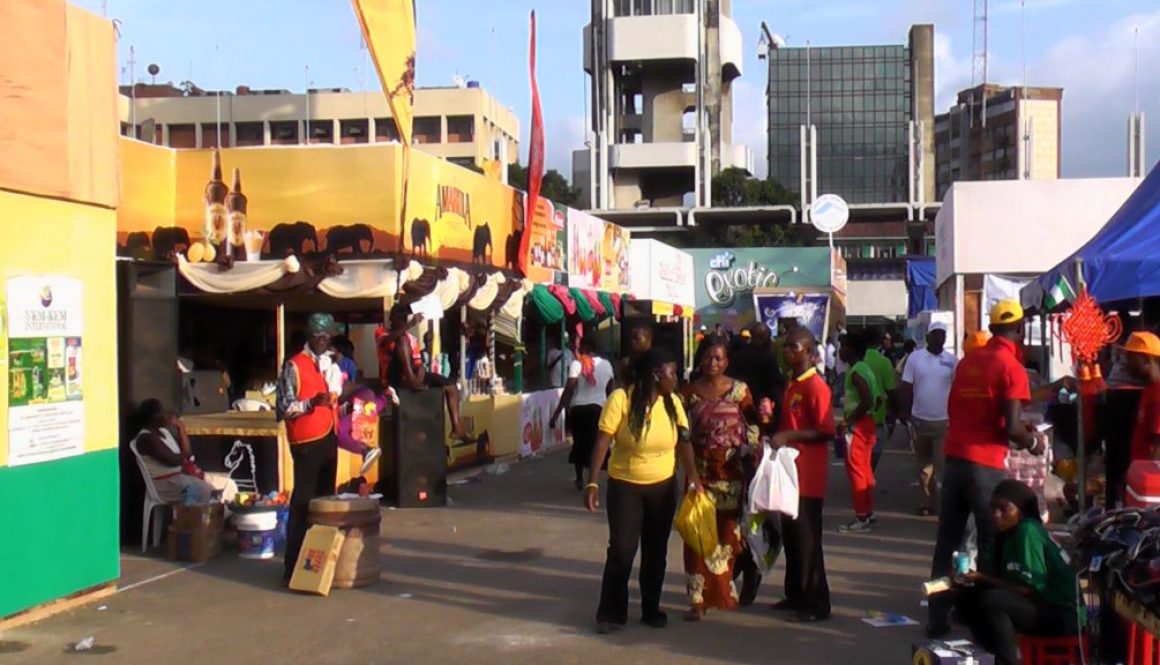Lagos International Trade Fair opens
The Minister of Industry, Trade and Investment, Otunba Adeniyi Adebayo, on Friday revealed plans by the federal government to deploy more mechanisms to drive trade facilitation and market access in an imminent revision of Nigeria’s trade policy.
Adebayo made this known at the opening ceremony of the 35th edition of the Lagos International Trade Fair (LITF) organised by the Lagos Chamber of Commerce and Industry (LCCI) on Friday in Lagos.
The minister, who also represented President Muhammadu Buhari at the event, said the revision would capture the country’s current economic realities.
He said that it would also consider the nation’s aspirations of further trade growth and access to markets both locally and regionally, especially in the advent of the implementation of the Africa Continental Free Trade Area (AfCFTA).
Adebayo said that the fully revised version of the trade policy would incorporate significant strategies to mitigate against the concerns of traders, such as infrastructure bottlenecks and low domestic demand for “Made-in-Nigeria” goods.
“It will also strengthen domestic value chains, especially in the agribusiness sector.
“As a Ministry, we recognise the role that government needs to play, to maintain confidence in both cross-border and wider international trade and investment.
“The year 2020 was challenging for all economies but Nigeria is coming back strong and in the first half of this year, investment announcements were at $10.1bn; an increase of 100 per cent on 2020.
“Investors from Europe, China, Morocco and the United Kingdom are making strong commitments and this administration is working tirelessly to ensure that these commitments turn into projects that positively affect our nation,” he said.
He said the LITF provided a great platform to amplify trade discussions and ensure Nigeria’s business community was well positioned for the AfCFTA.
“Also, the relevance of Lagos hosting the trade fair is rather obvious; asides being Nigeria’s financial hub, it is also home to the major exchanges and accounts for over 80 per cent of the country’s foreign trade flows and generates over 50 per cent of Nigeria’s port revenues.
“To achieve Nigeria’s mandate of wealth and value creation, we are committed to improving ease of doing business, increasing economic activities and ensuring the economy is diversified, whilst still creating jobs,” he said.
The President, LCCI, Mrs Toki Mabogunje, said the theme of the fair, “Connecting Businesses, Creating Value” underscored the importance of relationships and networking among businesses for the purpose of wealth creation.
Mabogunje said the Nigerian economic conditions had been challenging even as the economy recovered from the Coronavirus pandemic shocks and disruptions.
She said that as investors, there was need to continue to demonstrate resilience and determination to forge ahead despite the challenges.
“As a chamber, we have strong confidence in the Nigerian economy, and we believe we would meet our growth target for this year.
“The LCCI’s trade fairs, specialized exhibitions, and several business events are some of the many ways we support trade and commerce in the economy.
“We are committed to the vision of the current administration in respect of economic diversification and self-reliance, and our programmes, advocacy activities, and capacity development are geared towards the realisation of economic aspirations.
“This trade fair provides a platform to identify non-oil alternatives, highlights the significance of value addition and trade, equally serves as an avenue to boost economic and commercial activities,” she said.
Mabogunje charged government at all levels to do a lot to attract more private capital into the Nigerian economy.
“In this connection, our economic and investment policies must be right, and our institutions must be investment-friendly.
“We need to fix the structural, institutional, policy, and regulatory issues impeding private sector development,” she said.
As the fair kicked-off, exhibitors were gradually setting up their stands, with some saying they were expectant of a good time at the event.
Security and traffic management around the Tafawa Balewa Square venue were in place for the 10-day event at which some 1,500 exhibitors, including foreign ones from about 16 countries were expected.
It is also expected to attract some 500,000 visitors.
The Lagos International Trade Fair, the largest International Trade Fair in Nigeria, usually begins on the first Friday in November of every year.


